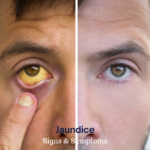Understanding Insomnia: Causes, Symptoms, and Treatment
Insomnia is a common sleep disorder that affects millions of people worldwide. Characterized by difficulty falling asleep, staying asleep, or waking up too early and not being able to get back to sleep, insomnia can significantly impact daily life and overall health. This article delves into the causes, symptoms, and treatment options for insomnia, providing a comprehensive understanding of this pervasive condition.
What is Insomnia?
Insomnia is a sleep disorder that can be acute (short-term) or chronic (long-term). Acute insomnia can last from one night to a few weeks and is often triggered by stress or a traumatic event. Chronic insomnia occurs at least three nights per week for three months or longer and can be linked to underlying health conditions or lifestyle factors.
Causes of Insomnia
The causes of insomnia can be varied and complex, often involving multiple factors. Here are some common causes:
- Stress and Anxiety: Stressful events, such as job loss, divorce, or the death of a loved one, can lead to acute insomnia. Anxiety disorders can also interfere with sleep, as worry and overthinking can keep the mind active at night.
- Depression: Depression is often linked with sleep problems. People with depression may experience insomnia as they struggle with negative thoughts and feelings that disrupt sleep.
- Lifestyle Factors: Irregular sleep schedules, poor sleeping habits, and overuse of electronic devices before bedtime can contribute to insomnia. Shift workers and travelers who frequently change time zones are particularly susceptible.
- Medications: Certain medications, including antidepressants, corticosteroids, and medications for high blood pressure, can interfere with sleep. Additionally, over-the-counter medications containing caffeine or other stimulants can cause insomnia.
- Medical Conditions: Chronic pain, asthma, diabetes, heart disease, and other medical conditions can cause discomfort that makes it difficult to sleep. Conditions like sleep apnea and restless legs syndrome directly affect sleep quality.
- Substance Use: Alcohol, caffeine, nicotine, and other substances can disrupt sleep patterns. While alcohol may initially make you feel sleepy, it can interfere with deep sleep stages, leading to fragmented sleep.
Symptoms of Insomnia
Insomnia can manifest in various ways, and its symptoms can significantly impact daily life. Common symptoms include:
- Difficulty falling asleep at night
- Waking up frequently during the night
- Waking up too early and not being able to fall back asleep
- Feeling tired upon waking
- Daytime sleepiness or fatigue
- Irritability, depression, or anxiety
- Difficulty concentrating or remembering
- Increased errors or accidents
The impact of insomnia on daily functioning can be profound, affecting work performance, personal relationships, and overall quality of life.
Diagnosis of Insomnia
Diagnosing insomnia typically involves a thorough evaluation by a healthcare provider. This may include:
- Medical History and Physical Exam: A detailed medical history and physical examination can help identify underlying health conditions or lifestyle factors contributing to insomnia.
- Sleep Diary: Keeping a sleep diary for one to two weeks can provide valuable information about sleep patterns and habits. This diary typically includes details about bedtimes, wake times, nighttime awakenings, and daily activities.
- Sleep Studies: In some cases, a sleep study may be recommended. This involves spending a night at a sleep center where various body functions, such as brain waves, heart rate, and breathing, are monitored during sleep.
Treatment of Insomnia
Effective treatment for insomnia often involves addressing the underlying causes and making changes to sleep habits and lifestyle. Treatment options include:
- Cognitive Behavioral Therapy for Insomnia (CBT-I): CBT-I is considered the first-line treatment for chronic insomnia. It involves identifying and changing thoughts and behaviors that contribute to sleep problems. CBT-I techniques include sleep restriction, stimulus control, and relaxation training.
- Medications: While medications are not the first choice for treating chronic insomnia, they can be helpful in certain situations. Prescription sleep aids, such as benzodiazepines or non-benzodiazepine sedative-hypnotics, may be used for short-term relief. Over-the-counter sleep aids, typically containing antihistamines, are also available but are generally not recommended for long-term use.
- Lifestyle and Behavioral Changes: Improving sleep hygiene can have a significant impact on sleep quality. Tips for better sleep include:
- Establishing a regular sleep schedule by going to bed and waking up at the same time every day, even on weekends.
- Creating a relaxing bedtime routine to signal to your body that it’s time to wind down.
- Making your sleep environment comfortable, cool, quiet, and dark.
- Limiting exposure to screens and bright lights before bedtime.
- Avoiding large meals, caffeine, and alcohol close to bedtime.
- Engaging in regular physical activity, but not too close to bedtime.
- Alternative Therapies: Some people find relief from insomnia through alternative therapies, such as acupuncture, meditation, and yoga. These practices can promote relaxation and reduce stress, which may help improve sleep.
- Addressing Medical Conditions: Treating any underlying medical conditions, such as chronic pain, sleep apnea, or restless legs syndrome, can also improve sleep quality.
Coping with Insomnia
Living with insomnia can be challenging, but there are strategies to help manage its impact:
- Stress Management: Learning to manage stress through techniques such as mindfulness, meditation, and deep breathing exercises can help reduce anxiety and promote better sleep.
- Support Networks: Talking to friends, family, or a therapist about your sleep problems can provide emotional support and practical advice.
- Healthy Lifestyle Choices: Maintaining a healthy diet, staying physically active, and avoiding substance use can improve overall health and sleep quality.
Conclusion
Insomnia is a complex sleep disorder that can significantly impact one’s quality of life. Understanding the causes and symptoms of insomnia is crucial for seeking appropriate treatment and making necessary lifestyle changes. With the right strategies and support, it is possible to manage insomnia effectively and enjoy restful, restorative sleep. If you are struggling with insomnia, consult a healthcare professional to explore the best treatment options for your situation





